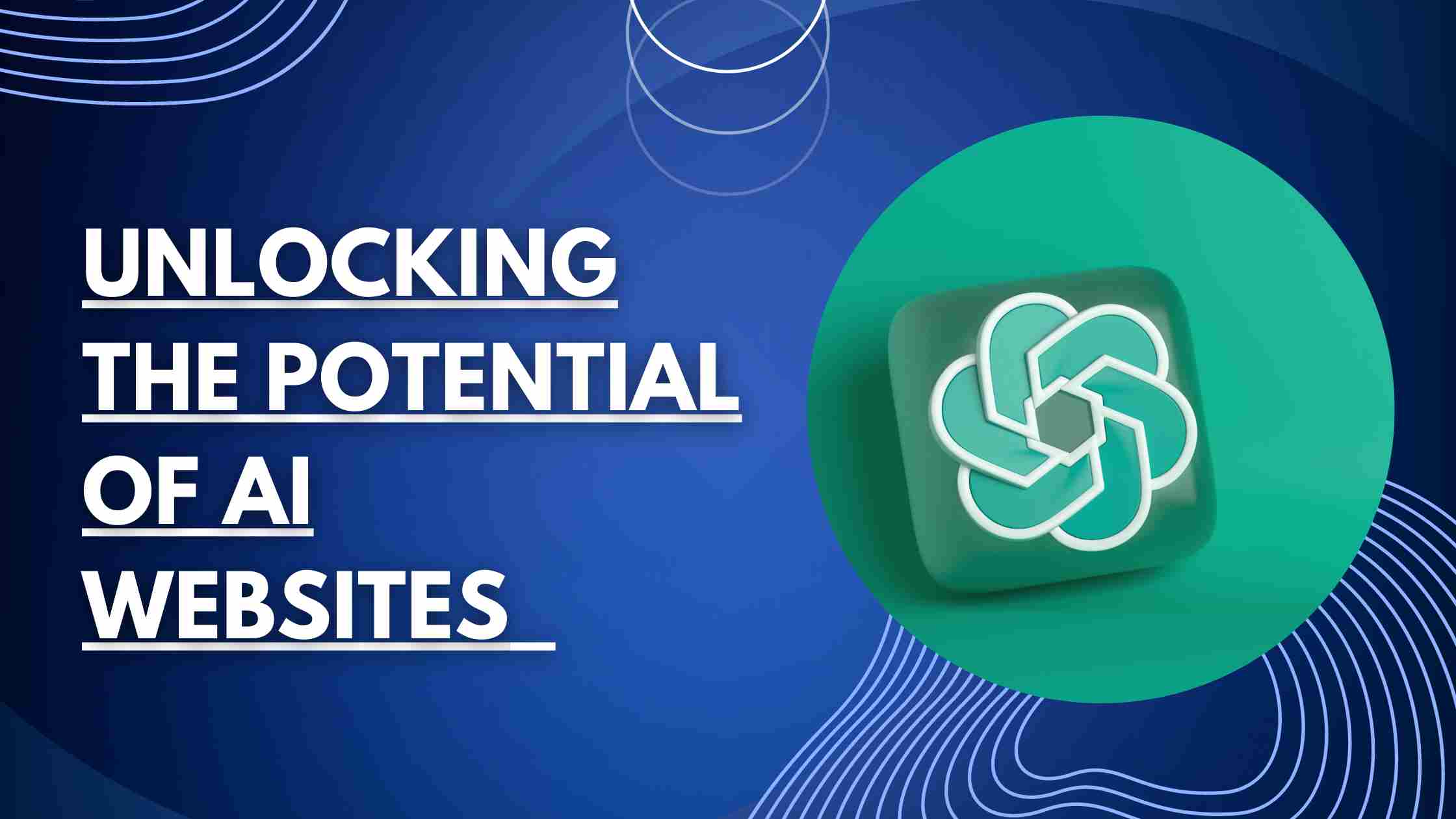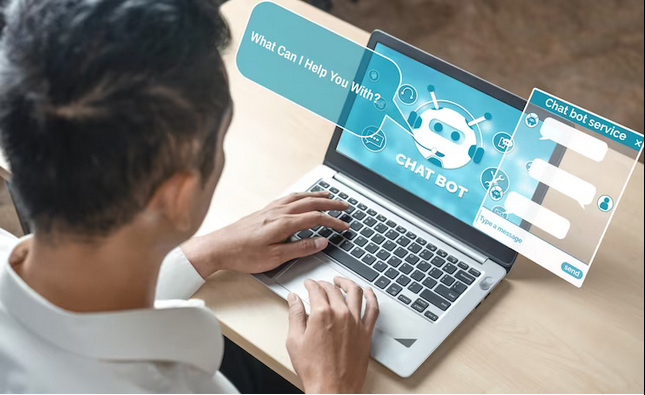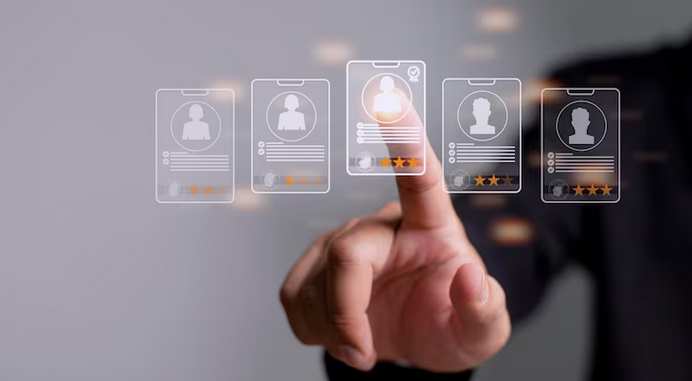
Unlocking the Potential of AI Websites: A Guide to Powerful and Intelligent Web Solutions
The Power of AI in Web Design: Revolutionizing the Digital Landscape
Introduction
Artificial Intelligence (AI) has emerged as a transformative force in various industries, and web design is no exception. With its ability to automate tasks, analyze data, and make intelligent decisions, AI is revolutionizing how websites are created, optimized, and personalized. In this blog post, we will explore the power of AI in web design, highlighting its key applications, benefits, and future for the digital landscape. From enhancing user experiences to improving conversion rates and enabling dynamic content generation, AI is reshaping how we design, develop, and interact with websites.
Intelligent Website Creation

AI technologies empower designers and developers to create websites more efficiently and effectively. AI-powered tools can generate website layouts, select color schemes, and suggest font combinations based on user preferences and industry trends. This saves time and ensures the design is aesthetically appealing and aligned with the brand’s identity. AI algorithms can also assist in automating repetitive tasks like code generation, image optimization, and responsive design, streamlining the development process and reducing human error.
Personalization and User Experience

AI enables websites to deliver personalized experiences tailored to individual users. AI algorithms can dynamically adjust content, recommendations, and user interfaces to match each visitor’s preferences and needs by analyzing user behavior, browsing patterns, and demographic data. Personalized experiences lead to higher engagement, increased customer satisfaction, and improved conversion rates. AI-powered chatbots and virtual assistants enhance user experiences by providing real-time support, answering inquiries, and guiding users through their journey on the website.
Data-Driven Insights and Optimization
AI algorithms can process vast amounts of data and extract valuable insights to optimize website performance. Through advanced analytics, AI can identify patterns, detect trends, and uncover opportunities for improvement. This includes analyzing user interactions, click-through rates, conversion funnels, and other metrics to identify areas of the website that need optimization. AI can also conduct A/B testing, automatically experimenting with design elements and layouts to identify the most effective variations. This data-driven approach allows businesses to continuously refine their websites, enhancing user experiences and driving better business outcomes.
Content Generation and Curation
AI technologies are revolutionizing content generation for websites. Natural Language Processing (NLP) algorithms can generate high-quality written content based on specific keywords and guidelines, such as product descriptions, blog articles, and social media posts. AI-powered content curation algorithms can analyze vast amounts of information from various sources and present relevant and engaging content to website visitors. This content creation and curation automation helps businesses consistently deliver fresh and valuable information to their audiences.
The Future of AI in Web Design
The future of AI in web design holds tremendous potential. As AI technologies evolve, we can expect more sophisticated algorithms and tools that further streamline the design and development process. AI will enable designers to create highly personalized and interactive websites that adapt in real-time to user preferences. Voice recognition and natural language processing will drive the rise of voice-activated interfaces, making website interactions more intuitive and accessible. Additionally, AI will significantly enhance website security by identifying and mitigating potential vulnerabilities and threats.
And businesses. The power of AI in web design lies in its ability to automate tasks, leverage data insights, and deliver personalized experiences, ultimately enhancing user satisfaction and driving business success.
As we look ahead, it is important to consider the ethical implications and responsible use of AI in web design. Privacy concerns, data security, and the potential biases embedded in AI algorithms are critical factors that must be addressed. Striking a balance between innovation and ethical practices will ensure that AI-powered websites prioritize user privacy, transparency, and inclusivity.
The integration of AI in web design is a dynamic and ongoing process. As technology advances and AI algorithms become more sophisticated, the possibilities for enhancing websites and user experiences are boundless. Here are a few areas where AI is expected to make a significant impact in the future of web design:
1. Enhanced User Interfaces: AI can revolutionize how users interact with websites by enabling natural language processing, voice recognition, and gesture-based interfaces. This will make website navigation more intuitive, efficient, and accessible to a wider range of users.
2. Intelligent Chatbots and Virtual Assistants: Chatbots and AI-powered virtual assistants are becoming increasingly popular in providing real-time customer support. They can understand user inquiries, offer personalized recommendations, and guide users through various processes on the website. As AI algorithms improve, chatbots will become even more intelligent, understanding user intent and providing more accurate and contextual responses.
3. Hyper-Personalization: AI’s ability to analyze vast user data can lead to website hyper-personalization. By leveraging AI algorithms, websites can dynamically present tailored content, product recommendations, and offers to individual users, significantly enhancing their experience and increasing conversion rates.
4. Predictive Analytics: AI can leverage machine learning algorithms to analyze user behavior patterns, identify trends, and predict user preferences and future actions. This can be used to optimize website design, content placement, and marketing strategies, ultimately improving user engagement and conversion rates.
5. Smart Content Management: AI-powered content management systems can automatically categorize and tag content, making organizing and retrieving information easier. Additionally, AI algorithms can generate metadata, alt tags for images, and SEO-friendly content, optimizing websites for search engine rankings.
6. Responsive Design Automation: AI can automate the creation of responsive web designs that adapt to different devices and screen sizes. This ensures consistent user experiences across platforms, improving accessibility and user satisfaction.
7. Automated Testing and Bug Detection: AI can streamline testing and debugging by automatically detecting errors, vulnerabilities, and website performance issues. This saves time and resources, ensuring websites are optimized and secure.
As AI continues to evolve, web designers and developers must stay updated with the latest advancements and adapt their skills accordingly. Collaboration between human designers and AI technologies will be crucial in creating innovative, user-centric, and visually appealing websites.
Conclusion
AI is transforming the field of web design, empowering designers and businesses to create highly personalized and engaging websites. AI-driven solutions are revolutionizing the digital landscape, from intelligent website creation and personalization to data-driven optimization and content generation. As AI technologies continue to advance, we can anticipate even more exciting developments that will shape the future of web design, making websites more intuitive, dynamic, and effective in meeting the evolving needs of users.
In conclusion, AI is revolutionizing web design, enabling the creation of intelligent, personalized, and optimized websites. From automating design processes and enhancing user experiences to generating dynamic content and driving data-driven insights, AI empowers businesses to deliver exceptional digital experiences. As AI technologies continue to evolve, the future of web design holds even more exciting possibilities. Embracing the power of AI in web design enables businesses to stay ahead in the digital landscape, meet evolving user expectations, and drive meaningful engagement. By harnessing the transformative potential of AI, we can shape a future where websites are not just static pages but intelligent platforms that adapt and cater to the unique needs of each user.
AI is poised to reshape the landscape of web design, ushering in a new era of intelligent, personalized, and optimized websites. By harnessing the power of AI in areas such as user interfaces, chatbots, personalization, predictive analytics, content management, and testing, businesses can deliver exceptional user experiences and drive their online success. Embracing AI in web design allows us to unlock technology’s full potential and create websites tailored to individual users’ needs and preferences. The future of web design is AI-powered, and the possibilities are exciting and limitless.


